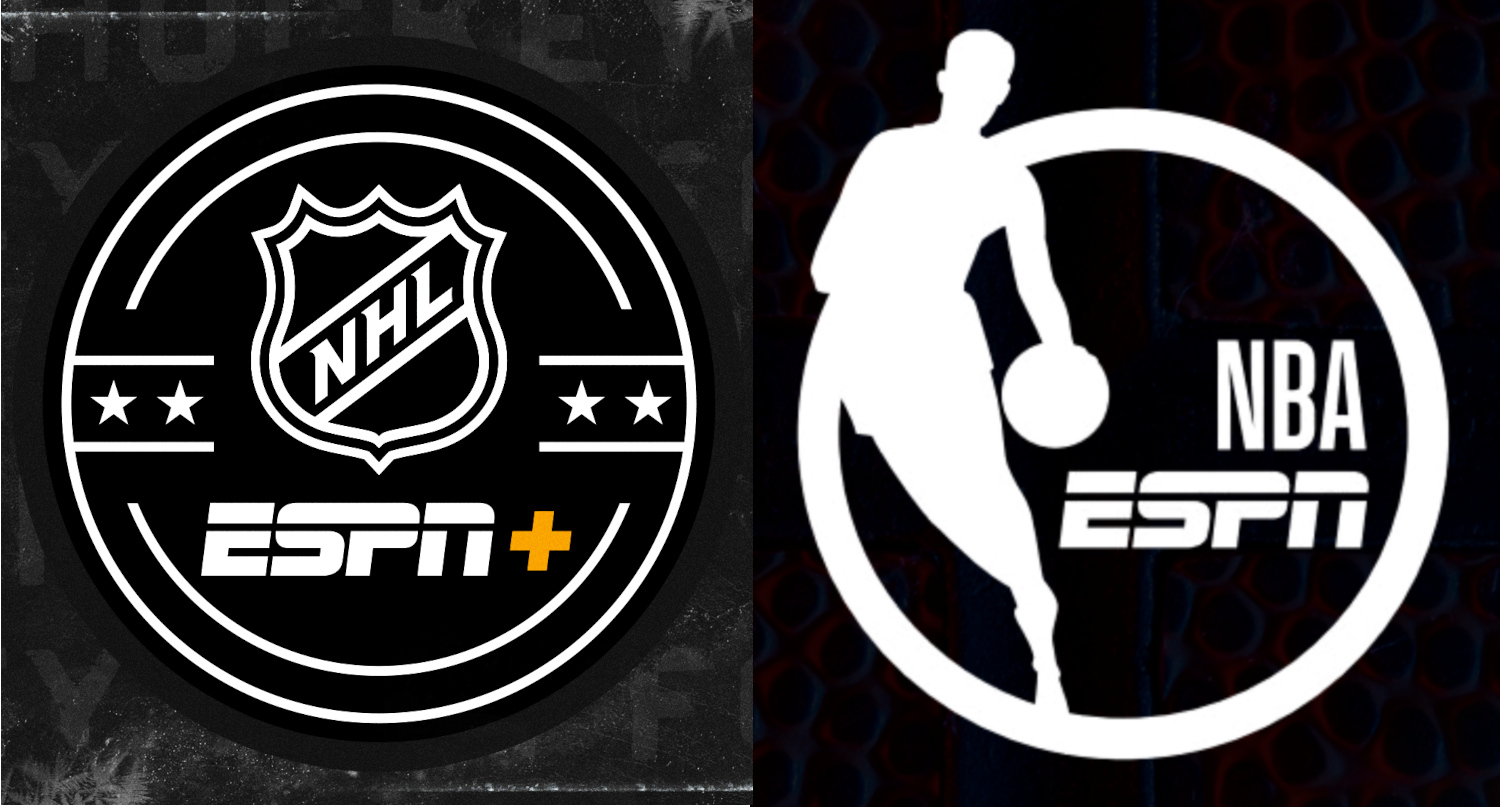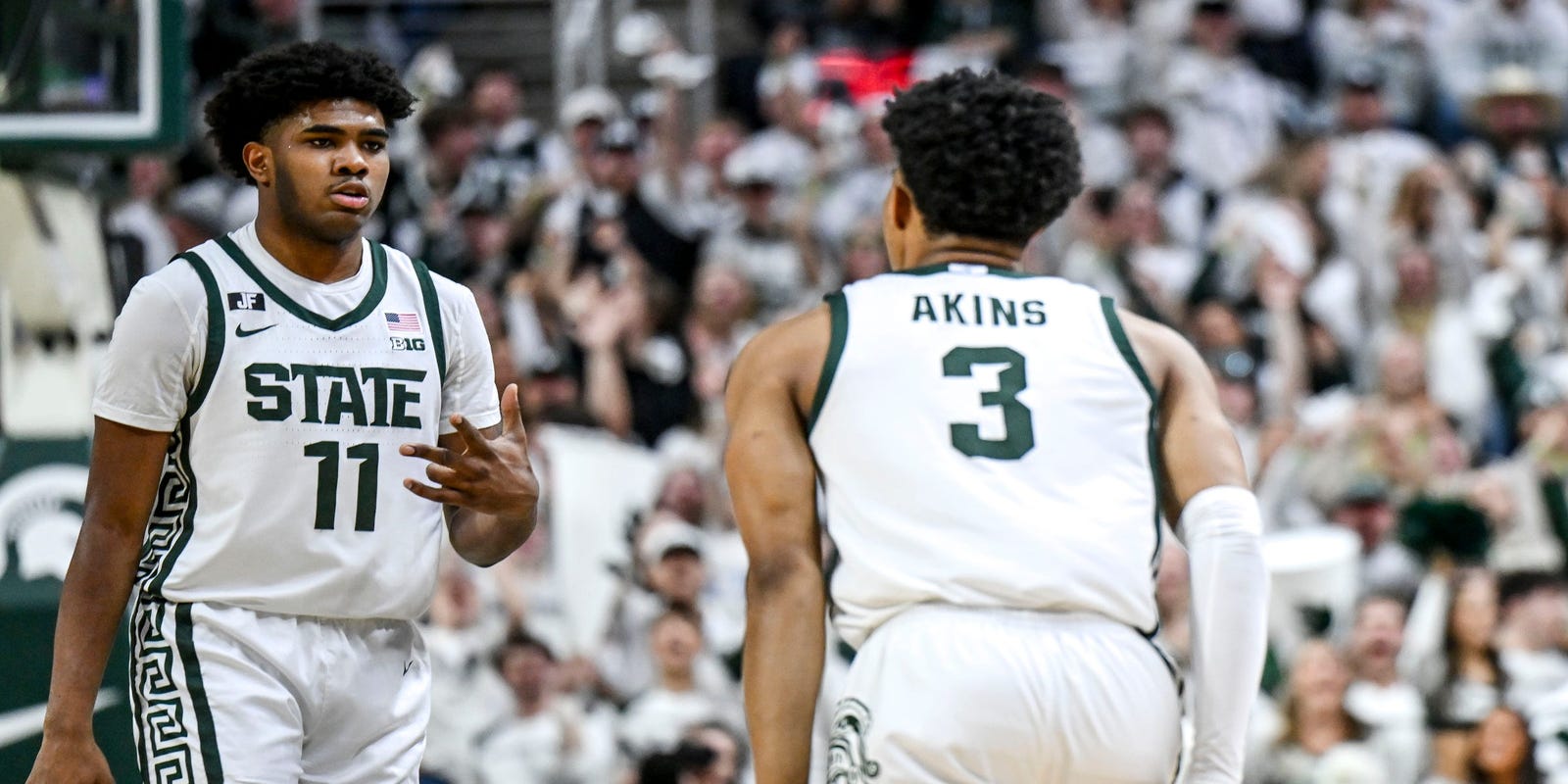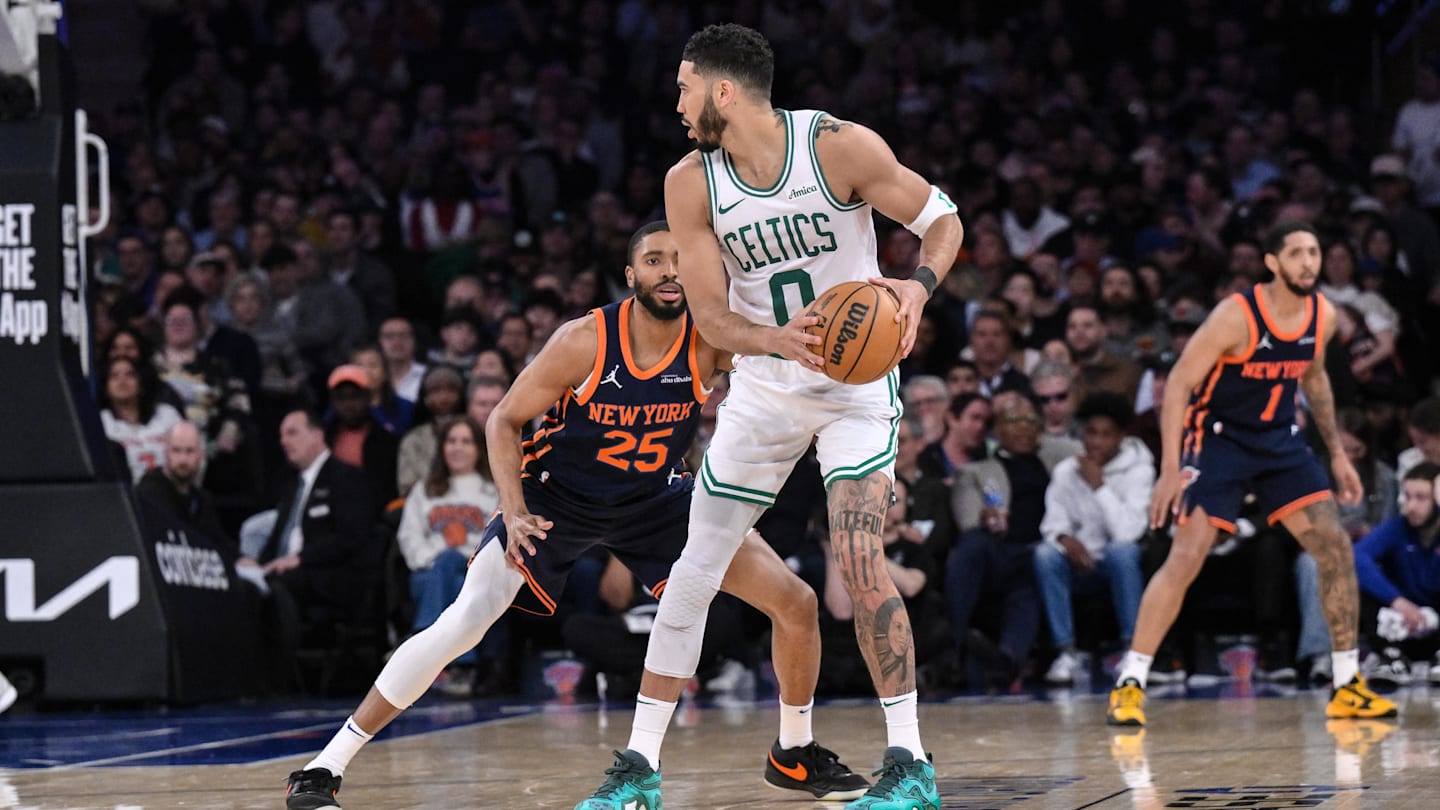
Since regaining NHL rights ahead of the 2021-22 season, ESPN has had both NHL and NBA playoff games each spring. Those playoff rights are in addition to their other spring commitments, including NFL Draft coverage and live rights for MLB, college sports, Formula 1, the UFL, and more.
Balancing all of that across ESPN’s networks can be a challenge. But ESPN senior vice president of programming and content strategy Ilan Ben-Hanan told Awful Announcing recently that the NBA and NHL playoff combination is also a huge opportunity for the company.
“This is such a fun time of year for us in many ways,” Ben-Hanan said. “They alternate on our networks and alternate networks over these couple of months. And it’s really a non-stop, every-night opportunity for fans to be super served this unbelievable postseason content.”
“It’s literally one day is one, the next is the other. On Easter Sunday, we had both. It’s just a really fun time.”
Ben-Hanan’s scheduling team plotted out that if every NHL and NBA series ESPN had went the max seven games, they would have 93 playoff games from those leagues this year. And, starting the day before Easter Sunday, the next 30 days had at least a potential NBA or NHL playoff game on ESPN networks, as did 44 of the next 45 days.
“That is just an insane stretch,” Ben-Hanan said. “That is just really, really cool.”
He said that speaks to how exciting this time of year can be for fans, especially when you add in other content ESPN also has.
“It’s kind of a sneaky fun time of year as a sports fan. I think we’re all conditioned to that kind of sports equinox that happens in October, where there’s postseason baseball and the NFL’s in full swing and the NBA’s starting, the NHL’s starting, you’re in college football. But I would actually say that this time of year where you combine the NFL Draft, and baseball’s in swing, and then postseason NHL and NBA, is another really, really fun time of year and something we’re really excited about.”
Beginning Monday, Second Round #StanleyCup Playoffs action skates across ESPN platforms
More: https://t.co/QAgwXwN0xH | #NHL pic.twitter.com/e88GMjCuZ3
— ESPN PR (@ESPNPR) May 5, 2025
Please enable JavaScript to view the poll powered by Disqus.
Of course, with that opportunity comes challenges in finding fits across ESPN’s platforms for all that content.
“In my world of getting to try to schedule these things on top of each other, working with both leagues, there could be building conflicts, there can be network conflicts,” Ben-Hanan said. “Trying to make it all fit, it’s kind of halfway between a puzzle and a Jenga tower. You want to make all the pieces fit, you don’t want anything to fall over or get into trouble.
“And mind you, you’re also working around this unbelievable other assortment of events. We just finished the NFL Draft, Sunday Night Baseball is still on our schedule, we’re in international soccer, college sports, Formula One. It’s really fun to try to figure it all out and do right by our lead partners, and of course, most importantly, do right by fans and make sure that they can see everything they want to see this time of year.”
Part of that scheduling approach has led to NBA games typically being on ESPN networks one night while NHL games are on TNT Sports’ networks, with that situation then reversed the following night. Ben-Hanan (who’s been with ESPN since 2002, and has been in his current role of leading “the content strategy and scheduling across all domestic linear networks and digital platforms” since 2023) said that practice generally works well for all parties involved.
“It’s really just a function of the work it takes to triangulate between television, network, league partners and teams themselves. Most series kind of alternate days, so you can kind of map out the cadence of a given series. And then we work really closely with leagues and of course with Turner to basically say ‘Okay, we map this out well in advance, and we have a general sense of which night we are with which league.’”
Eight teams out, eight still in it 🍿#NBAPlayoffs pic.twitter.com/pKlKVUgtpv
— ESPN (@espn) May 5, 2025
Interestingly enough, that alternating-days approach was in place during ESPN’s previous (1992-2004) run with the NHL. And Ben-Hanan said it didn’t change during the years when NBC had NHL rights and ESPN and the then-Turner Sports didn’t, which helped ease the way on the scheduling front when those companies reacquired NHL rights beginning in 2021.
“The funny thing going back to that time was if you look at how the NBA postseason schedule was drafted on ESPN, going back 20 years, it was originally scheduled in such a way because we had the NHL playoffs,” Ben-Hanan said. “If you go all the way back there, the nights where the NBA was available to ESPN where the nights where we didn’t have NHL. And then when we lost the rights to the NHL, the NBA paradigm never changed, the nights of the week that we had for the NBA stayed the same.
“So all those years later when the opportunity to reacquire the NHL came along, we actually had a ready-made hole for those games in such a way that would complement and not cannibalize each other. And that’s what led to this dynamic.”
Ben-Hanan said the other key factor there is the way the NHL and NBA work together on scheduling, as many of their teams share buildings.
“To be able to have these every single night for weeks on end was in part due to that history. But it’s a great collaborative partnership. The leagues by necessity have to collaborate and communicate with each other, because they have building conflict in markets where teams are active in both.”
That doesn’t make the scheduling puzzle simple to figure out, though, especially as there’s often more to consider than just these teams.
“The leagues have to work with each other and their network partners to kind of make it all make all the pieces fit,” Ben-Hanan said. “This didn’t happen this year, but I can tell you last year we also had to work around Billy Joel concerts at MSG. There’s always things you would never think about that factor into making the puzzle pieces fit.”
But Ben-Hanan said that puzzle is solvable, thanks to people at both media companies and both leagues all working together to find the best solutions as the playoffs proceed.
“The intricacies come into play where you figure out which teams actually get in there,” he said. “Home court or home ice in a given series might impact what series falls where, what games fall where. The good news is you have a lot of really smart and talented people who are all rowing in the same direction here, right?
“We want to do what’s right for each league. We want to do what’s right for the fans. We want to do what’s right for the teams. And we all have windows to fill.”
With all these series lasting anywhere from four to seven games, there’s a lot of potential adaptation required. But Ben-Hanan said from his perspective, extra games are always worth it despite any scheduling hurdles they might cause.
“When you work in programming, more is always better, right?” he said. “If you ever ask me who I’m rooting for in a game, the answer is overtime. I always want the most possible games and the most and the best possible drama, the highest stakes. If you told me today that we could get game sevens in every single one of these series, of course I would say ‘Sign me up.’
“I think anyone who works in our business would. And by the way, I think any fan would say that too, unless you’re rooting for a team who’s ahead and you’re biting your nails down to the quick. But just the excitement and drama of the postseason, there’s nothing better. And we are prepared and available to schedule everything.”
Mikko Rantanen and the Stars tie it up with a crazy goal in Game 7!
Sean McDonough and Ray Ferraro have the ESPN on ABC call. 🏒🚨🎙️ #NHL pic.twitter.com/MqJ5fF4w2H
— Awful Announcing (@awfulannouncing) May 4, 2025
Ben-Hanan said ESPN’s approach is to make sure they have a network for each possible game on a given night, then bump games up the network tier if some series don’t go that long.
“What happens is as games start falling out, of course we have to start shuffling the deck a little bit. But we’re really blessed to have so many networks and platforms and league partners that we can always kind of find something if we need to move something from ESPN2 to ESPN, move something from ESPNU to ESPN2. So we’re always kind of able to fill the gaps. But given the chance, if you’re telling me I’m getting game sevens, I’m saying ‘Yes please.’”
What games go to which network on a given night is another part of the puzzle. Ben-Hanan said ESPN uses past ratings data to help make those calls.
“There’s lots of history from a ratings and data perspective to inform those decisions. The good news here is there’s always something great to put on all those networks, so we’re always well positioned.”
But he said the even larger focus is arranging games so fans can watch as much action as possible.
“On a given night, let’s say there’s four games on from hockey on a given weeknight, two will go on ESPN, two will go on ESPN2. We’ll stagger them just a little bit, so you’ll often see something that looks like 7:00 and 9:30 ET on ESPN and 7:30 and 10:00 ET on ESPN 2. And the thinking there is that you can kind of hopscotch from one to the other; if you’re in intermission on one, you’re usually in in action on the other, and vice-versa.
“We think of it as a bigger picture as opposed to network-by-network, to say, ‘Hey, what is the best way for fans to experience these games?’ You try to minimize overlap where you can. There’s only so many hours in the day, of course. But if you look on the weekends, you’ll often see our league partners putting games two in the afternoon and two in primetime, and really allowing for fans to go game-to-game as much as possible.”
Speaking of those weekend games, many of them air on network television on ABC. That’s as part of a larger recent emphasis we’ve seen from Disney on increasing ABC’s sports programming and providing the extra reach leagues desire. Ben-Hanan said being able to use ABC for live games is a tremendous asset for ESPN’s scheduling department.
“It kind of helps complete the picture for us,” he said. “From our point of view, it’s another excellent network and platform that we can deliver quality content on. For us, the ABC sports philosophy generally is afternoons on the weekends and Saturday night.”
Ben-Hanan said ESPN generally wants to use ABC windows whenever they can.
“If we can, we want to. It’s just a great way to complete the overall portfolio for us. What we like from an ESPN or Walt Disney Company perspective, we’re thinking, ‘Hey, we have a broadcast network, we have cable networks, we have a direct-to-consumer platform, we kind of have you covered wherever you are.’
“It matches our mission statement, which is to serve sports fans anytime, anywhere. So we’re happy to have it, and it’s great. It really just gives us maximum flexibility and maximum opportunity to program aggressively.”
Another aspect of this schedule crunch is finding appropriate spots for surrounding studio coverage ahead of, during, and after games. Ben-Hanan said that remains a focus for ESPN as well.
“From our end, having those pregame, halftime or intermission reports, and postgames and being able to feel like you have every angle covered is very important. We try very hard to make sure that we have our pregame available on our major networks. Certainly in postgame a lot of times we have SportsCenter coming out of whatever the last event of the night was, but we very quickly turn back to the site or go back to that sport-specific studio show to help recap the night or to look ahead to tomorrow.”
He said the intense hours here around all this live content can be challenging for ESPN employees, especially around long-overtime games, but it all works out.
“People are working really long days, long hours. Sometimes you’ll watch some of our studio shows late in the evening and the guys are getting a little punchy. But I think that’s okay. I think that’s how it is: even as a sports fan, your head is kind of on a swivel. I think that’s kind of a fun element of this time of year.”
“That’s the youth right there.” 😭
Fred VanVleet’s reaction to Alperen Sengun crashing his interview with @notthefakeSVP 😂 pic.twitter.com/H3dWhYI0v8
— SportsCenter (@SportsCenter) May 3, 2025
The latest
And overall, Ben-Hanan said live games are central to ESPN’s programming.
“From our point of view, really everything starts there. It starts with being able to present and provide as many live games for our fans as possible. They vote with their remotes every single night. And that’s what drives the most audience, what drives the most sales revenue, the most value for our company.”
“It’s where you start, and then it’s what it means from there. For example, I’m sitting in my office right now watching ESPN2, and you can bet what they’ll be talking about all day will be NBA playoffs, NHL playoffs, NFL draft. What happened? Who won? Who lost? It all drafts off of those live events.
“We start with the live events, and then we surround it with commentary, with opinion, with informed analysis, with reporting, with all the things that people come to us for. And that’s just on television: that doesn’t get us started with what’s happening on social media, and what’s happening in the digital space. But for us at ESPN, it starts with the live events.”

